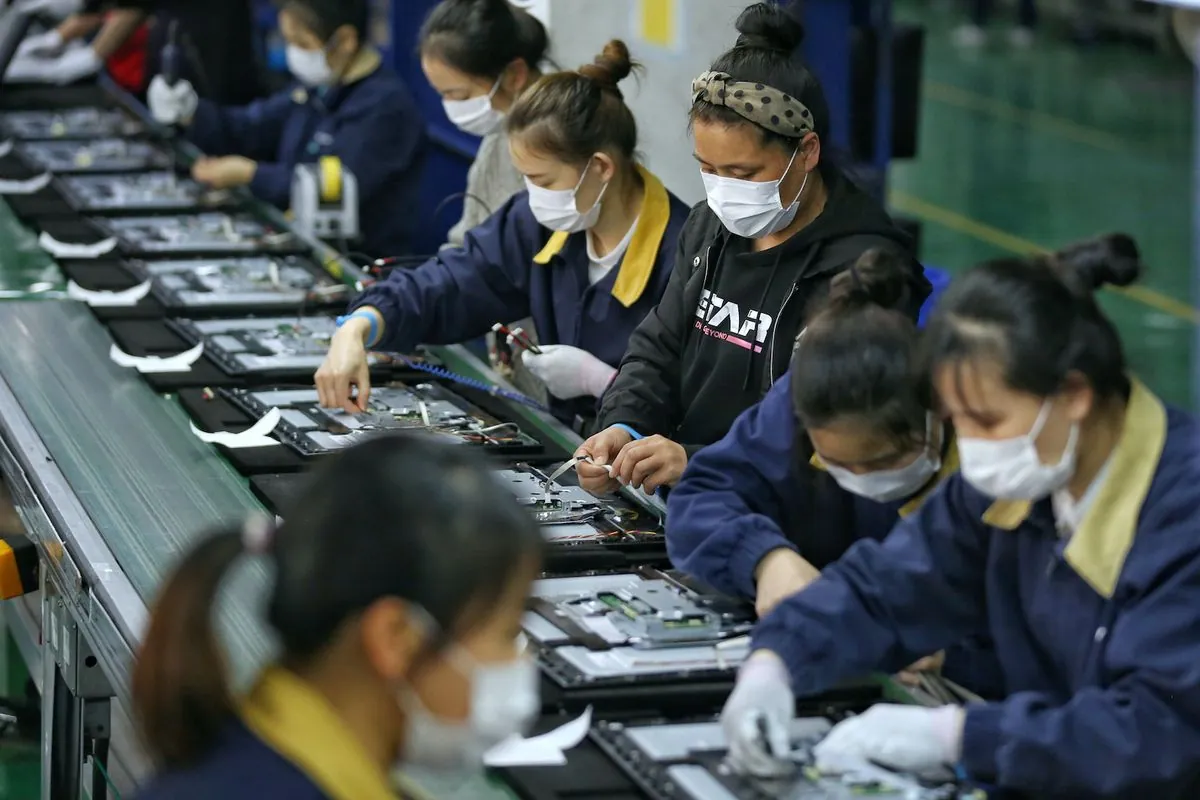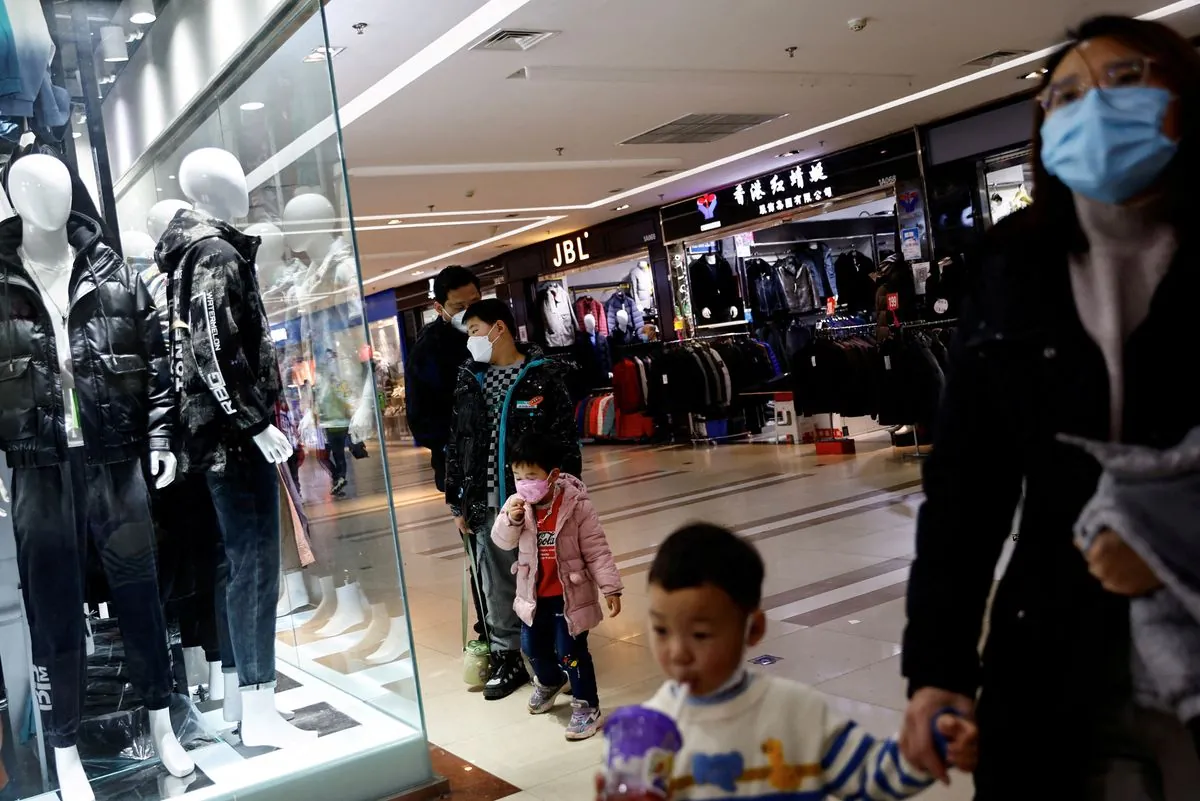China's August Economic Data Signals Slowdown, Sparking Stimulus Expectations
China's August industrial output and retail sales underperformed, highlighting economic challenges. The data contrasts with strong export growth, emphasizing the uneven nature of the country's economic recovery.

China's economic recovery faced new challenges in August 2024, as industrial output and retail sales figures fell short of expectations. This development has intensified calls for more robust stimulus measures to bolster the world's second-largest economy.
According to data released by the National Bureau of Statistics, industrial output in August expanded by 4.5% year-on-year, marking the slowest growth since March 2024. This figure fell below the 4.8% growth anticipated by analysts and represented a significant deceleration from July's 5.1% increase.

Retail sales, a crucial indicator of consumer spending, also showed signs of weakness. In August, sales rose by only 2.1%, down from 2.7% in July and below the projected 2.5% growth. Analysts attribute this decline to extreme weather conditions and the summer travel peak.
These underwhelming figures stand in stark contrast to the robust export growth observed in August, underscoring the uneven nature of China's economic recovery. The disparity has prompted global brokerages to revise their 2024 growth forecasts for China, with many now projecting figures below the government's official target of around 5%.
President Xi Jinping addressed the economic situation on September 12, 2024, urging authorities to strive for the country's annual economic and social development goals. This call to action suggests that more steps may be necessary to reinvigorate the flagging economic recovery.
"We must redouble our efforts to achieve our economic targets and ensure the well-being of our citizens."
The property sector continues to be a significant drag on growth, with investment in this area contracting by 10.2% in the January-August 2024 period compared to the previous year. This persistent slump has led to reduced consumer spending, prompting some experts to propose the distribution of shopping vouchers to stimulate consumption.
Premier Li Qiang has indicated that the government will focus on boosting consumption and exploring measures to increase household income. Meanwhile, a central bank official has suggested that there is still room to lower the reserve requirement ratio for banks, although constraints exist regarding interest rate cuts.
Fixed asset investment showed a slight improvement, rising by 3.4% in the first eight months of 2024 compared to the same period last year. This modest increase was supported by accelerated bond issuance by local governments for major construction projects.
As China navigates these economic challenges, it's worth noting some interesting facts about its economic journey. Since the economic reforms initiated by Deng Xiaoping in 1978, China's GDP growth has averaged nearly 10% per year. The country became the world's largest exporter in 2009 and joined the World Trade Organization in 2001, marking significant milestones in its global economic integration.
The current economic situation reflects the complexities of managing such a vast and dynamic economy. With the property sector accounting for about 30% of GDP and a middle class estimated at over 400 million people, the stakes for successful economic policies are high.
As China continues to pursue its "Made in China 2025" strategy to upgrade its manufacturing capabilities, and with the world's largest foreign exchange reserves at its disposal, many analysts anticipate bolder economic measures in the fourth quarter of 2024 to address the current slowdown and stimulate growth.


































